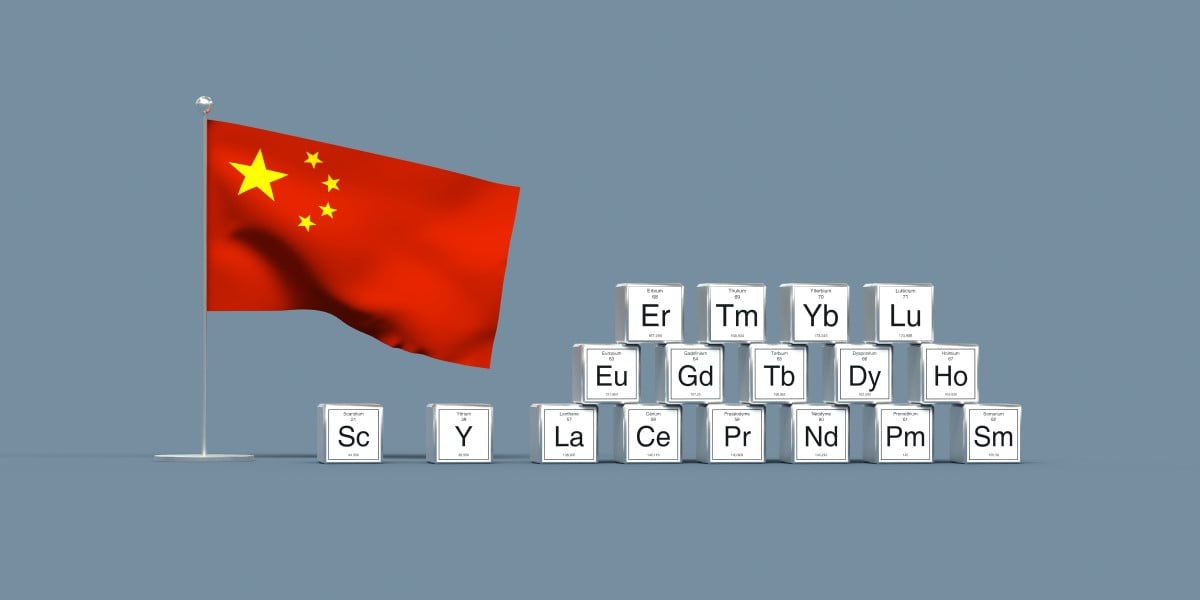World war fee Well, well, well. If it isn't the consequences of thine actions. The Trump administration's global trade war is threatening to hit US military readiness.
The Center for Strategic and International Studies (CSIS) this week flagged national security risks tied to rare earth element (REE) export restrictions China implemented earlier this month as part of its response to Trump's soaring tariffs on the nation . Seven REEs - samarium, gadolinium, terbium, dysprosium, lutetium, scandium, and yttrium - now require special export licenses from the Chinese government to leave the country. REEs are crucial for a range of defense technologies, including F-35 fighter jets .

.. "The United States is particularly vulnerable for these supply chains," CSIS said.
"REEs are crucial for a range of defense technologies, including F-35 fighter jets, Virginia- and Columbia-class submarines, Tomahawk missiles, radar systems, Predator unmanned aerial vehicles and the Joint Direct Attack Munition series of smart bombs." For reference, the CSIS noted that a single F-35 contains 900 pounds of rare earths, while a Virginia-class submarine uses more than four and a half tons of the stuff. The US, which CSIS says is already on the back foot when it comes to manufacturing these defense technologies, risks falling further behind China.
According to the center , the Middle Kingdom is acquiring and producing advanced weapons systems at a pace five to six times faster than the United States. "Further bans on critical minerals inputs will only widen the gap, enabling China to strengthen its military capabilities more quickly than the United States," CSIS said. China, with its stranglehold on rare earths and export controls on the technology needed to process them, is putting the US in a tight spot - one it's still years away from solving, CSIS warned.
There is currently no heavy rare earth separation taking place in the US, the study noted, and despite Pentagon plans to establish a full "mine-to-magnet" domestic supply chain by 2027, development remains slow. One firm with Dept of Defense backing, MP Materials, is expected to produce 1,000 tons of neodymium-boron-iron (NdFeB) magnets annually at full capacity by the end of 2025. This is a tiny fraction of the estimated 300,000 tons China cranked out in 2024, the CSIS noted.
Even with recent investments, the United States is a long way off from meeting the DoD's goal ...
and it is even further from rivaling foreign adversaries in this strategic industry "Even with recent investments, the United States is a long way off from meeting the DoD's goal ...
and it is even further from rivaling foreign adversaries in this strategic industry," CSIS noted. "Developing mining and processing capabilities requires a long-term effort, meaning the United States will be on the back foot for the foreseeable future." Other countries working to close the gap are also nowhere near ready to compete with China, which the center said will maintain a monopoly on heavy rare earth refinement "for the time being.
" As mentioned above, this isn't the first time China has tightened the screws on rare earths. In 2023 and 2024, it imposed limits on rare earth tech and other strategic minerals to cement its grip on the supply chain. Congress, likewise, predicted the possibility of a rare earth faceoff between the US and China in a 2023 report , CSIS pointed out.
In short, the Trump administration should have anticipated this outcome before reigniting a trade war with the one country that dominates the global supply of critical minerals. Exports of rare earth minerals reportedly stopped over the weekend, as China has yet to establish a regime for authorizing exports of the restricted materials. Even if the country were to go easy on granting permits, the US would be unlikely to benefit, CSIS said.
"The announcement [of rare earth export controls] also placed 16 US entities on its export control list, limiting them from receiving dual-use goods," CSIS said. All but one of the US companies added to China's export control list are in the defense and aerospace sectors. So what's left for the US to do? With no quick fix for domestic production, CSIS says Washington will need to start throwing serious money behind rare earth operations in allied nations to have any hope of closing the strategic gap.
Allies? Remember those? "For the United States to build alternative sourcing partners for long-term supply chain security, it is important to continue to provide financial and diplomatic support to ensure the success of these initiatives," CSIS said. "Working with international partners can also help to overcome gaps in technological know-how when it comes to REE separation and processing." ® Nearly all of those working for the Pentagon's Defense Digital Service – a rapid-response tech team – are leaving after being sidelined by the Trump-blessed DOGE unit, Politico reports.
.
Technology

Pentagon needs China's rare earths, Beijing just put them behind a permit wall. Oops

Trump’s tremendous trade tussle triggers troubling twist, theoretically World war fee Well, well, well. If it isn't the consequences of thine actions. The Trump administration's global trade war is threatening to hit US military readiness....














